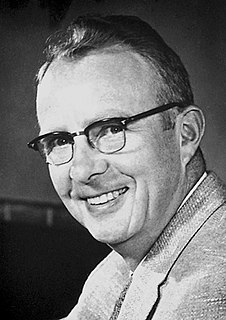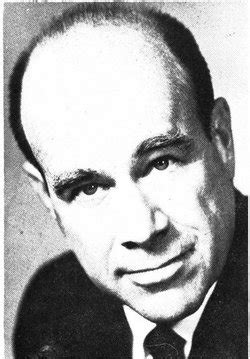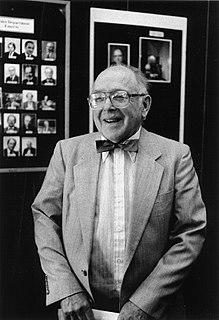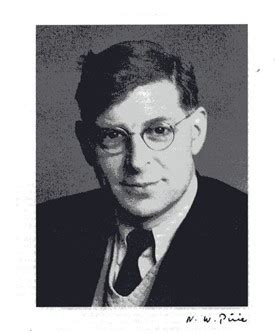A Quote by Luis Walter Alvarez
I'm convinced that a controlled disrespect for authority is essential to a scientist. All the good experimental physicists I have known have had an intense curiosity that no Keep Out sign could mute. Physicists do, of course, show a healthy respect for High Voltage, Radiation, and Liquid Hydrogen signs. They are not reckless. I can think of only six who have been killed on the job.
Related Quotes
Physicists only talk to physicists, economists to economists-worse still, nuclear physicists only talk to nuclear physicists and econometricians to econometricians. One wonders sometimes if science will not grind to a stop in an assemblage of walled-in hermits, each mumbling to himself words in a private language that only he can understand.
If you look at the last 150 years, about every 30 years or so, a new scientific discipline emerges that starts spinning out technologies and capturing people's imaginations. Go back to 1900: That industry was chemistry. People had chemistry sets. In the 1930s, it was the rise of physics and physicists. They build on each other. Chemists laid the experimental understanding for the physicists to build their theories. It was three physicists who invented the transistor in 1947. That started the information revolution. Today, kids get computers.
No scientist or student of science, need ever read an original work of the past. As a general rule, he does not think of doing so. Rutherford was one of the greatest experimental physicists, but no nuclear scientist today would study his researches of fifty years ago. Their substance has all been infused into the common agreement, the textbooks, the contemporary papers, the living present.
If physicists could not quote in the text, they would not feel that much was lost with respect to advancement of knowledge of the natural world. If historians could not quote, they would deem it a disastrous impediment to the communication of knowledge about the past. A luxury for physicists, quotation is a necessity for historians, indispensable to historiography.
Over the last century, physicists have used light quanta electrons, alpha particles, X-rays, gamma-rays, protons, neutrons and exotic sub-nuclear particles for this purpose. Much important information about the target atoms or nuclei or their assemblage has been obtained in this way. In witness of this importance one can point to the unusual concentration of scattering enthusiasts among earlier Nobel Laureate physicists. One could say that physicists just love to perform or interpret scattering experiments.
I have a suggestion that I think would help fight serious crime. Signs. There are lots of signs for minor infractions: No Smoking, Stay Off the Grass, Keep Out, and they seem to work fairly well. I think we should also have signs for major crimes: Murder Strictly Prohibited, NO Raping People, Thank You for Not Kidnapping Anyone. It's certainly worth a try. I'm convinced Watergate would never have happened if there had just been a sign in the Oval Office that said, Malfeasance of Office Is Strictly Against the Law, or Thank You for Not Undermining the Constitution.
It is quite true that many scientists, many physicists, maintain that the physical constants, the half dozen or so numbers that physicists have to simply assume in order to derive the rest of their understanding ... have to be assumed. You can't provide a rationale for why those numbers are there. Physicists have calculated that if any of these numbers was a little bit different, the universe as we know it wouldn't exist.
I don't. We've had three technological revolutions that have changed the course of human history, all driven by physics. In the first, the industrial revolution, physicists developed Newtonian mechanics and thermodynamics, which gave us the steam engine and machine power. The second technological revolution was the electricity revolution. That gave us radio, television, and telecommunications. Then, physicists developed the laser and the transistor.
Chemists are, on the whole, like physicists, only 'less so'.They don't make quite the same wonderful mistakes, and much what they do is an art, related to cooking, instead of a true science. They have their moments, and their sources of legitimate pride. They don't split atoms, as the physicists do. They join them together, and a very praiseworthy activity that is.
































